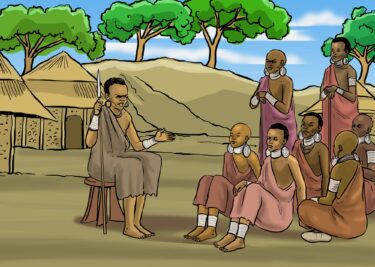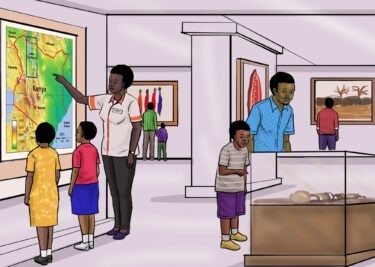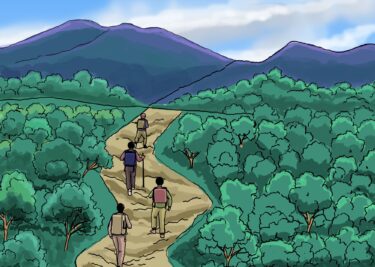Improving Literacy in South Western Kenya

Waregi Primary School
Not many community project developers can speak of outstanding success in their first years; that is unless you speak to the likes of Joel Nakitare and Abbas Swaleh – coordinators of a community library project taking place in southwestern Kenya. What started out as an idea transformed into an international partnership that ensured, and continues to, the communities of Homabay and Migori had access to reading materials.
The reality that is today was simply a dream three years ago when Joel, the senior librarian at Rongo University, evaluated the institution’s reasons for existence – teaching, nurturing, research, and community service. The question that recurred from time to time was how best the university could implement its mission to offer community service.
After evaluating findings from community outreaches, and referring to the web for legitimate book projects being conducted around the world, he found Africa Library Project (ALP). It seemed like an ambitious partnership. After all, Rongo University wasn’t located in the capital or any of the larger towns in Kenya. But these thoughts didn’t waver Joel’s determination to serve the community. After informing the various heads at the university, he sent out a proposal to ALP and waited, anticipating the next move. Fortunately, one of the founding members of ALP was visiting Kenya, and so plans to meet with Joel and members of Rongo were set.
The meeting revealed more information to the university team. For starters, ALP had gained significant repute through working in other countries. The second was that both parties shared interest in community development through literacy programs. Talks done, ideas shared and next moves noted, the reality of the project was solidified.
Next came the ‘individual’ tasks. Rongo University’s role was to find local, needy schools and community centers that were keen on setting up libraries – and they did. ALP was in charge of organizing book drives in the U.S. There was specificity in the selection of books and the focus was to collect books that would potentially improve literacy and encourage reading among children. For this project, the conditions set for zones to be considered as libraries were: room availability for stocking of books, information material which was the books supplied by ALP, and information sharing programs. Thus, a teacher librarian had to be present on site.
For the final condition, Rongo ensured they identified teachers from the communities interested in the program, went ahead to train them to oversee the continuation of the project. The first project was rolled out between the financial years of 2016 and 2017, and Rongo University was able to set up 34 libraries between Homabay and Migori counties. In the second year, 64 libraries were set up and championed the project coordinators to continue doing their good work.
Today, Rongo University, together with ALP, is rolling out their third financial year with the hope to reach more schools and community centers. Besides setting up libraries, one of their highlights during the duration of the project has been distributing Braille material to Sikri Technical Training Institute for the Blind and Deaf in Oyugis.
This is truly a Paukwa style project, and we applaud both Rongo University, Abbas and the entire ALP team for showing us the importance of #KeLibraries.
#WorldBookDay2019




5 Comments
This is fantastic! Kudos to the founders. I am fascinated by how big things are achieved by ‘small’ people with big dreams! Incredible work indeed
We like to call them hummingbirds, or, #PaukwaPeople
#Littlethings Congratulations
This is a wonderful initiative. You are creating hidden momentum for life long learning. Keep up!
This is so good. The literacy level is increasing. Kudos